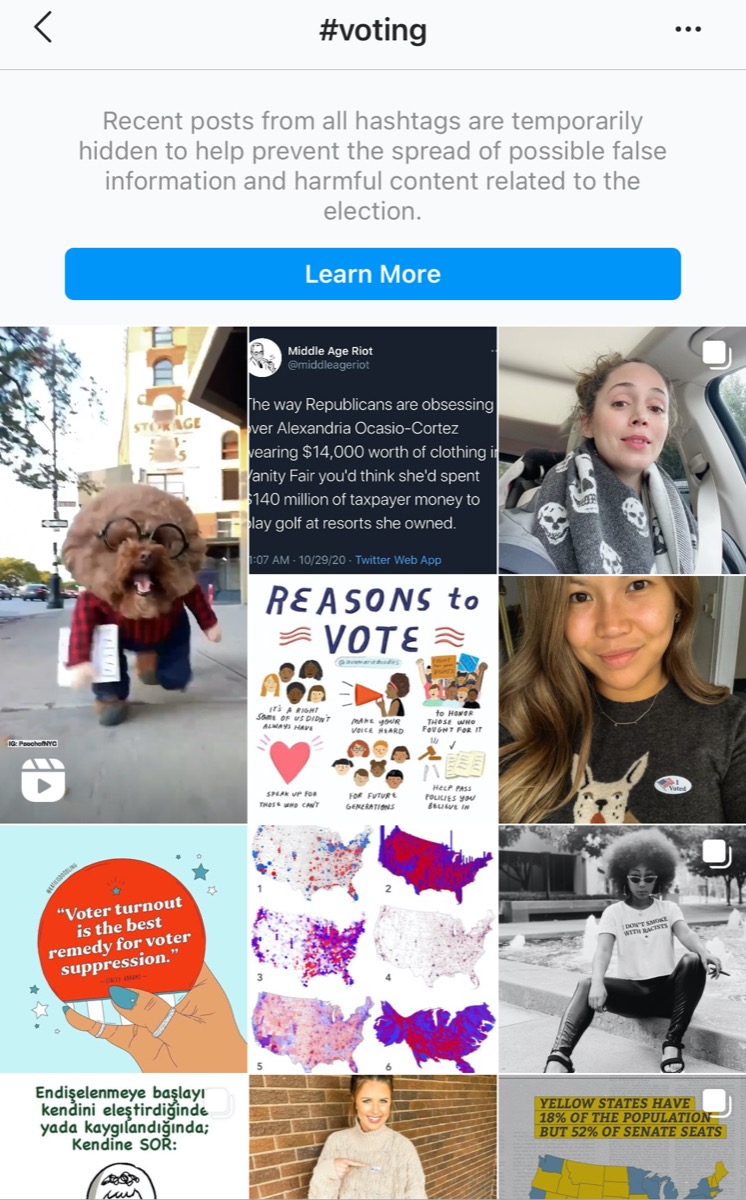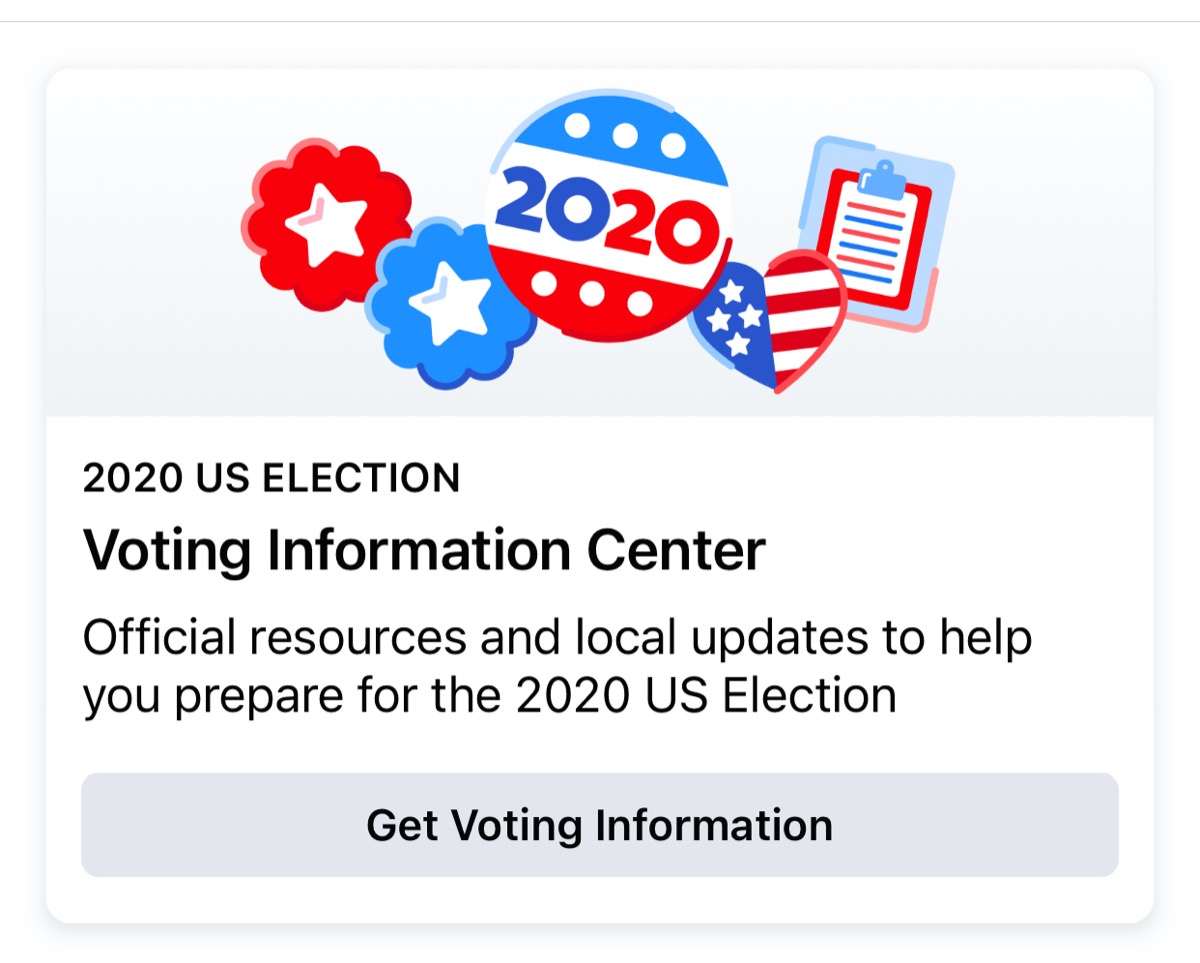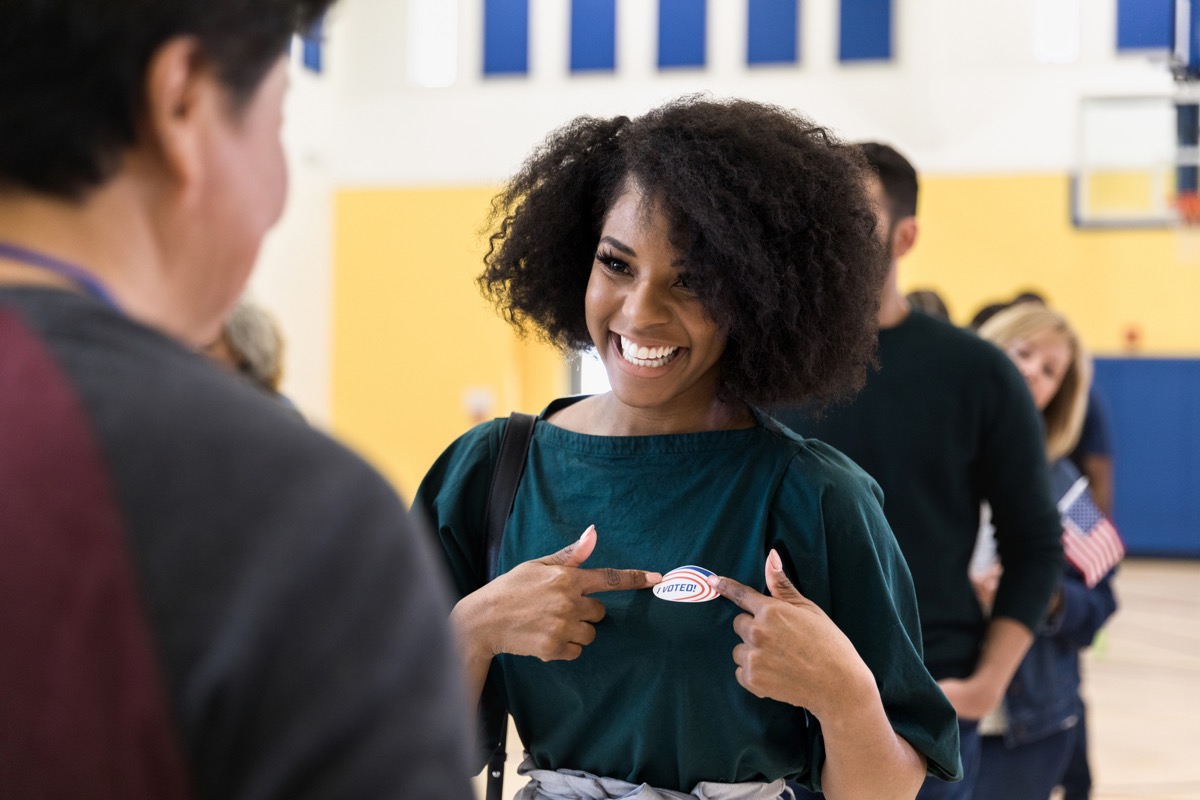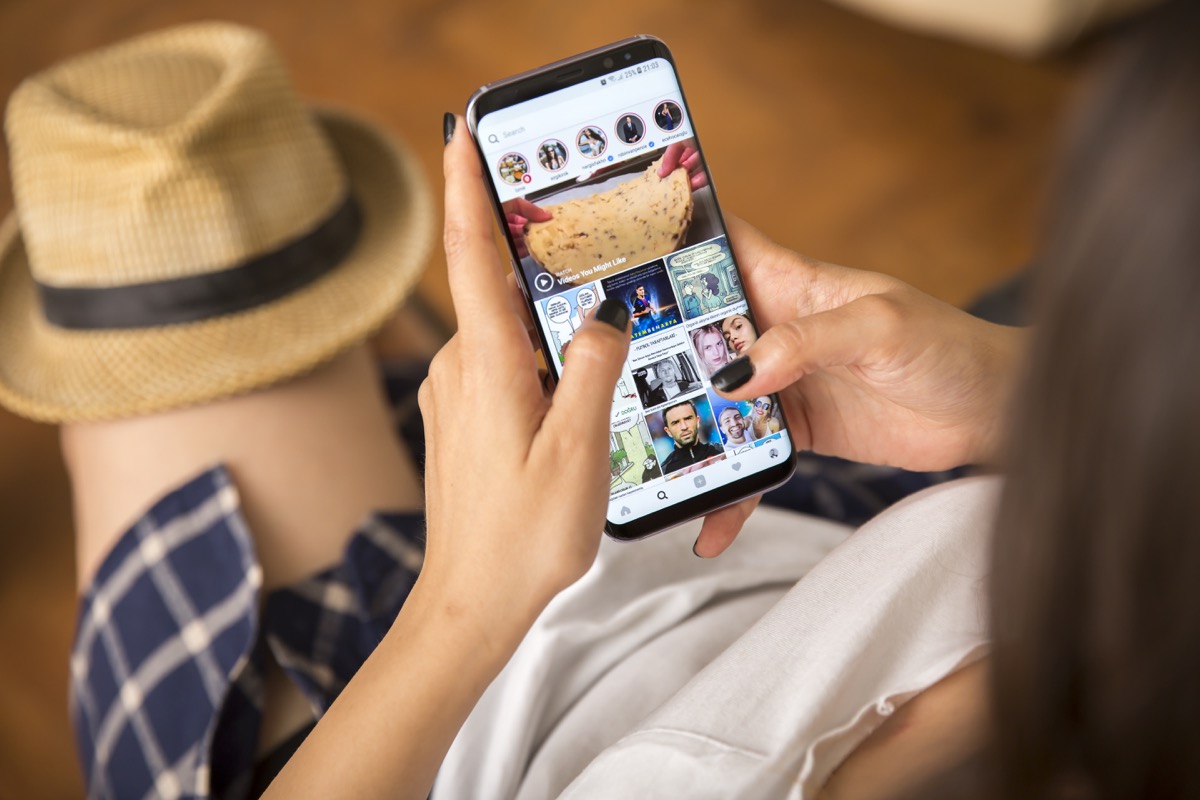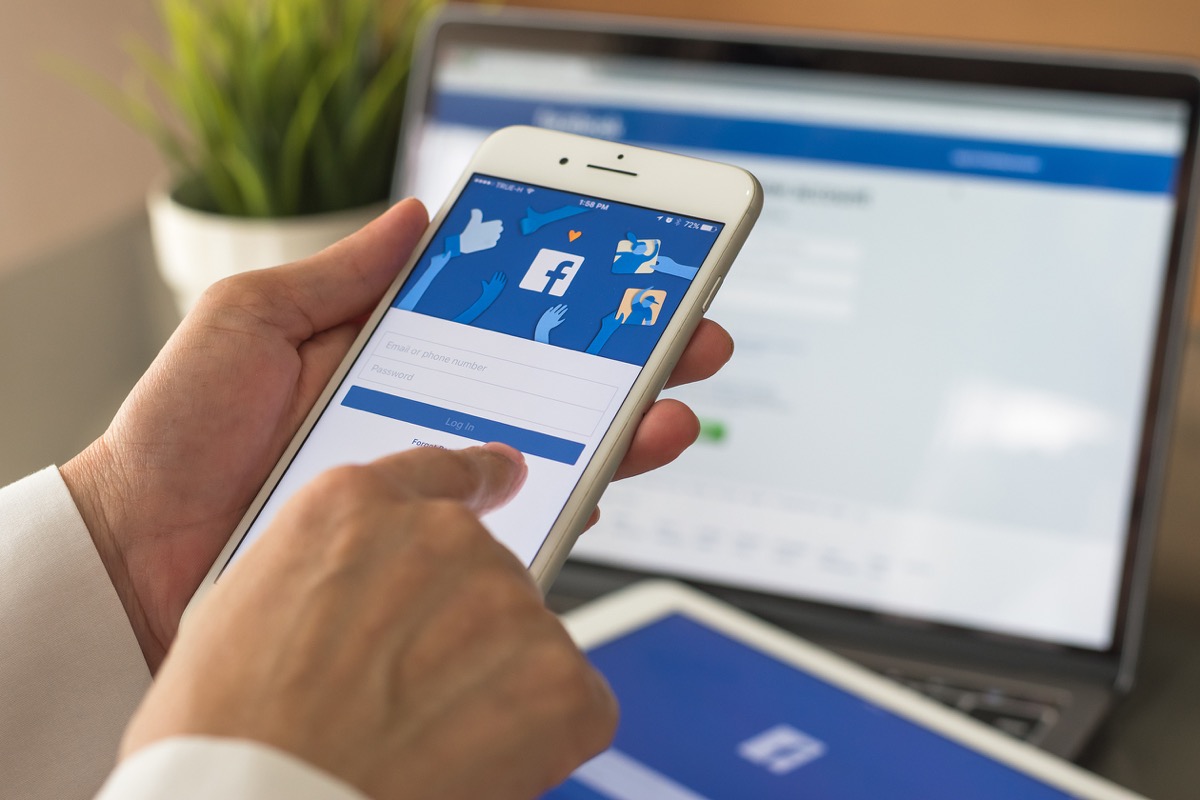Instagram announced on Oct. 29 that they have temporarily removed the “Recent” tab from hashtag pages in response to the upcoming United States general election on Nov. 3. “As we near the U.S. elections, we’re making changes to make it harder for people to come across possible misinformation on Instagram,” the company tweeted on Thursday night. “We’re doing this to reduce the real-time spread of potentially harmful content that could pop up around the election.” Before disabling the feature, Instagram allowed users to click on hashtags, and they would be sent to a page that showed a collection of posts that have used that hashtag, divided into two tabs: Top and Recent. The Recent tab featured all fresh content labeled with that hashtag, allowing users to spam strangers more easily. This move may not be surprising for some, as Instagram is owned by Facebook and Facebook CEO Mark Zuckerberg recently spoke about his concerns in regards to civil unrest surrounding the election. “I’m worried that with our nation so divided and election results potentially taking days or weeks to be finalized, there is a risk of civil unrest across the country,” Zuckerberg said on Oct. 29 during a call to discuss Facebook’s third-quarter earnings. “Given this, companies like ours need to go well beyond what we’ve done before.” But this isn’t Zuckerberg’s first move to try to prevent his social media platforms from having a negative impact in regards to the election. For more recent moves Instagram and Facebook have made or plan to in light of the upcoming election, read on. And for another big shift from a company you depend on, check out how much Netflix Just Secretly Raised Your Subscription Cost. Facebook and Instagram launched their Voting Information Center on Aug. 13, intended to serve as a “one-stop-shop to give people in the U.S. the tools and information they need to make their voices heard at the ballot box.” In a statement, the company explains that these platforms are continuously being updated with the latest election information in each state through linking to and sourcing “information from state election officials and other nonpartisan civic organizations.” And for more on the upcoming election, find out How Every Swing State Is Expected to Vote. A goal of the Voting Information Center initiative has been to register 4 million voters. Users have been able to click a link on each platform that brings them directly to their state’s website or the company’s nonpartisan partner to register to vote. And if you’re voting in the upcoming election, make sure you’re aware of The One Thing the CDC Says Voters Shouldn’t Do During Election Day. Nick Clegg, Facebook’s vice president of global affairs and communications, revealed on Oct. 19 that both Facebook and Instagram had rejected more than 2 million ads and withdrawn around 120,000 posts for attempting to “obstruct voting” in the upcoming election. And for more useful content delivered straight to your inbox, sign up for our daily newsletter. Facebook announced on Oct. 7 that the site would temporarily ban all social issue, electoral, and political ads from running after polls officially close on Nov. 3. The company said this is a safeguard to “reduce opportunities for confusion or abuse,” but did not specify when the ads would be able to run again. And for more on voting, find out The Celebrity Americans Trust Most When It Comes to Political Opinions.ae0fcc31ae342fd3a1346ebb1f342fcb
